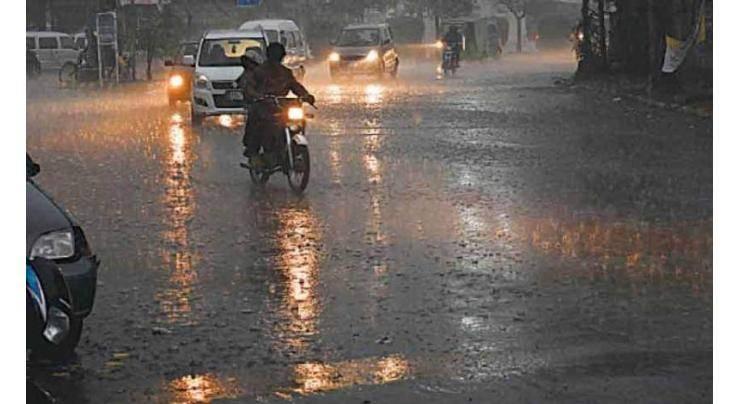New police force deployed to combat drug use in Karachi’s schools and colleges
Police will also monitor shisha bars, social media platforms, and courier services, which are allegedly involved in drug trafficking


Karachi: A new police force has been established in the South Zone of Karachi to combat drug use in schools, colleges, and universities.
The decision was made during a consultative meeting of the "Coalition Against Drugs" held at the office of the Deputy Inspector General (DIG) South, attended by heads of over 50 educational institutions from areas including Clifton, DHA, and Saddar, along with senior police officials.
Speaking to the media, DIG South Syed Asad Raza announced the formation of a new unit called the “Campus Security and Substance Abuse Watch”, comprising 50 officers, including female personnel, who will be deployed across various educational institutions.
He noted that the uniforms for this unit are distinct and were designed in consultation with the institutions to project an image of cooperation rather than authority.
The DIG added that police had consulted with around 150 schools, colleges, and universities in the South Zone to better understand the issue of drug use, distribute responsibilities, and develop a comprehensive strategy to combat the problem.
As part of this broader strategy, police will also monitor shisha bars, social media platforms, and courier services, which are allegedly involved in drug trafficking.
During the meeting, singer and social activist Shehzad Roy proposed that students using drugs should not be treated as criminals but as victims in need of support.
Sadia Faisal from Karachi Grammar School suggested introducing age-appropriate curricula to address the issue effectively within institutions.
According to a statement issued after the meeting, the presence of the campus force at varying times could serve as a deterrent to drug use, and cooperation between police and institution administrators would be key in formulating effective prevention strategies.
Participants also agreed to develop a curriculum that educates students about the dangers and consequences of drug use, including its impact on both physical and mental health.
This special curriculum will include life skills training, aimed at helping students handle pressure, make informed decisions, and manage stress.
Additionally, awareness campaigns, workshops, and seminars will be organized for students, teachers, and parents to educate them about the risks of drug use.
Regarding parental involvement and drug testing, it was decided that parents would be educated on the dangers of drug use and the importance of regular testing. With parental consent, random drug tests will be conducted on students, making parents active partners in the process.
The statement added that facilities and resources would be provided to parents to help them address drug-related issues affecting their children.
Participants agreed that random blood testing for drugs on campus could discourage students from using drugs, as they would be aware they could be tested at any time. Students found to be using drugs would be identified and provided with help and resources.
It was also decided that teachers would receive training to recognize signs of drug use, such as behavioral changes or physical symptoms. They would be equipped with the skills to assist struggling students and direct them to appropriate resources. Teachers would also be given strategies to manage classrooms and create a positive learning environment.
Furthermore, school heads and police officers agreed to closely monitor changes in student behavior.
Meeting attendees pledged to view students as victims rather than criminals and to regularly monitor student behaviors such as attendance, academic performance, and social interactions. Any signs of behavioral changes indicating possible drug use would be addressed early with appropriate support.
Participants emphasized the importance of regular collaboration between law enforcement, teachers, and administrators to develop effective strategies and actionable plans. Additionally, students themselves would be consulted to understand their concerns and implement targeted interventions.

CFP Bubble Watch: The 12 teams currently in and the four on the cusp
- 10 hours ago

Taliban government denies nationwide internet ban in Afghanistan
- 8 hours ago

13 Indian-backed terrorists killed in Balochistan operations: ISPR
- 7 hours ago
Tensions rise as Israel storms humanitarian flotilla near Gaza
- 3 hours ago
Protesters in Madagascar demand president’s resignation
- 10 hours ago

PDMA issues rain alert Across Punjab from October 5 to 7
- 8 hours ago
Swiss glaciers record fourth-largest ice loss amid heat and low snowfall
- 4 hours ago

Lahore tops global list of most polluted cities again
- 7 hours ago

ANF seizes 271kg narcotics, arrests 5 in nationwide crackdown
- 6 hours ago

Internet reconnected in Afghanistan after two-day shutdown
- 4 hours ago

Rupee gains slightly in interbank as dollar falls to Rs281.30
- 7 hours ago
Hamas demands amendments to Trump’s 20-point Gaza peace plan
- 8 hours ago











